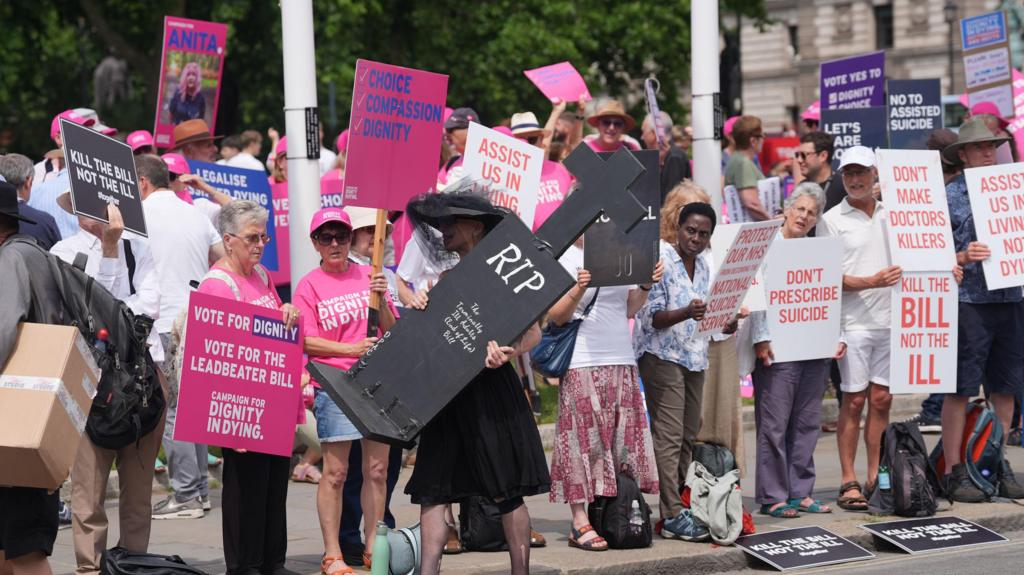In a landmark vote, the House of Commons approved a bill granting terminally ill adults in England and Wales the right to assisted dying. The Terminally Ill Adults Bill passed with 314 votes in favor and 291 against, a 23-vote majority.
This follows a previous debate in November, where the bill passed with a larger margin. The bill now proceeds to the House of Lords for further review.
The vote concluded an emotionally charged debate, with MPs sharing personal experiences of loved ones facing end-of-life decisions. A free vote allowed MPs to disregard party lines.
Prime Minister Sir Keir Starmer supported the bill, while Conservative leader Kemi Badenoch and Health Secretary Wes Streeting opposed it.
Bill sponsor, Labour MP Kim Leadbeater, expressed elation, highlighting the significance for terminally ill individuals and their families. The vote occurred nine years after the murder of her sister, Jo Cox, a fellow Labour MP.
Leadbeater emphasized her confidence in the bill’s safeguards against coercion. However, critics, such as Conservative MP Danny Kruger, argued the reduced majority indicates waning support and called for the House of Lords to reject or significantly amend the legislation.
Kruger questioned the bill’s constitutional validity, noting its absence from Labour’s manifesto. The Commons debated the bill’s principles for over three hours, with concerns raised by Conservative MP James Cleverly regarding the neutrality of medical professional bodies on the bill’s specific measures.
Labour MP Peter Prinsley countered by emphasizing the sanctity of human dignity and the importance of choice for the dying. Prior to the main vote, amendments were approved, including one to address the “anorexia loophole” and another mandating a government review of palliative care services within a year of the bill’s passage. An attempt to restrict access to assisted dying for individuals with mental health challenges or feelings of being a burden was defeated.
Parliament votes on legislation allowing terminally ill adults to choose assisted dying. The bill faces further scrutiny in the House of Lords.

